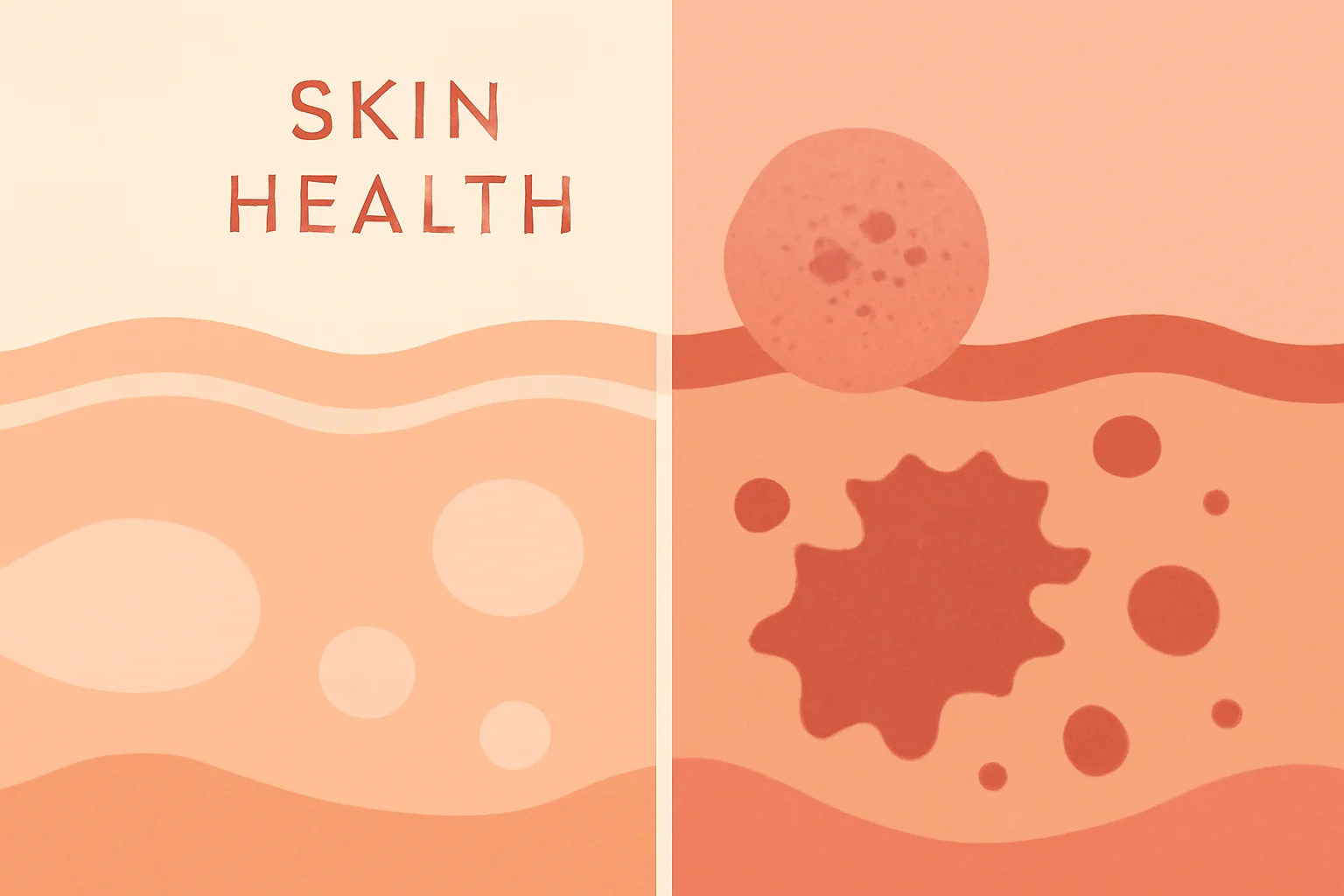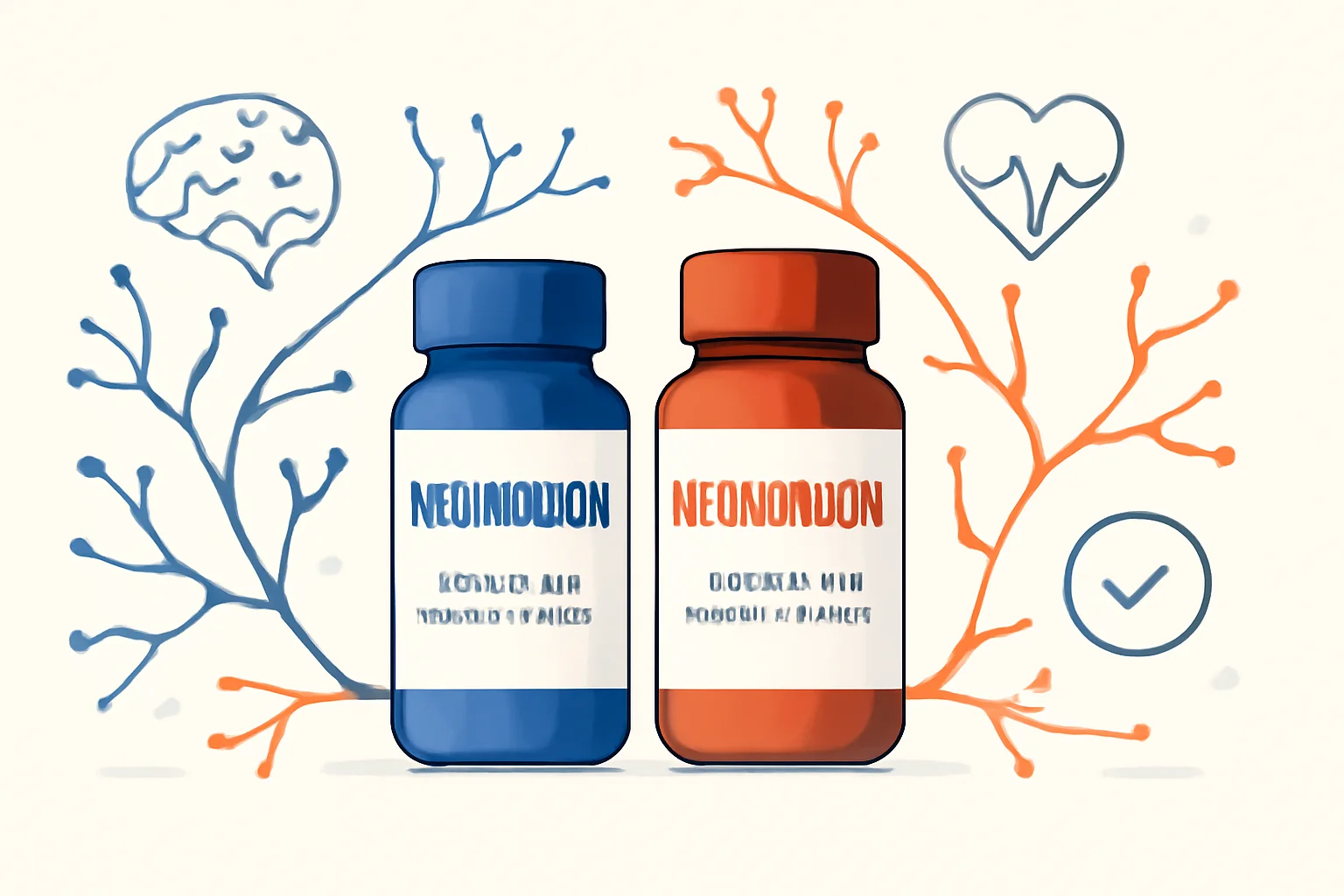
Fungal infection or eczema? Symptoms, causes, and effective treatment methods
The skin fungus and eczema are among the most common skin problems that affect many people worldwide. Both conditions can cause uncomfortable symptoms such as itching, redness, and inflammation. Skin fungus is a fungal infection that attacks the upper layers of the skin, while eczema is a chronic dermatitis that usually develops as a result of allergic reactions or irritation. These two conditions can burden patients’ lives not only physically but also mentally, as visible parts of the skin often impact our self-esteem.
Understanding the Differences Between Skin Fungus and Eczema
Understanding the differences between skin fungus and eczema is crucial for proper treatment and prevention. People often do not know which condition they are facing, which can delay the application of appropriate remedies. Skin fungus typically spreads in warm, moist environments, while eczema often develops due to dry skin and allergens. The symptoms also differ, making accurate diagnosis even more challenging.
Therefore, it is important to thoroughly understand both conditions to take the appropriate steps for their treatment. Below, we will examine skin fungus and eczema in more detail to gain a clearer picture of the symptoms, causes, and treatment options.
Skin Fungus: Symptoms, Causes, and Treatment
Skin fungus, also known as dermatophytes, is an infection caused by fungi that attack the surface layers of the skin, nails, and hair. The most common forms of skin fungus include athlete’s foot, nail fungus, and fungal infections of the body. The symptoms of skin fungus typically include itching, redness, peeling, and the appearance of red spots or rashes on the skin’s surface.
The causes of skin fungus can be diverse. Most commonly, a warm and moist environment promotes the growth of fungi, making public swimming pools, changing rooms, and sports fields common places where infections can easily spread. A weak immune system, diabetes, and skin injuries can also play a role in the development of fungal infections.
Treatment for skin fungus generally involves the use of antifungal creams, sprays, or tablets. Topical treatments can quickly alleviate symptoms, but it is important to continue treatment for the recommended duration to avoid relapse. Additionally, prevention is key: keeping the skin dry, wearing appropriate footwear, and adhering to hygiene rules can help avoid skin fungus.
Eczema: Characteristics, Triggers, and Treatment Options
Eczema, also known as atopic dermatitis, is a chronic skin disease that is usually accompanied by itching, redness, and peeling. Eczema most commonly begins in childhood, but it can also occur in adults. During the disease, the skin’s barrier function weakens, allowing various allergens and irritants to penetrate the skin.
The triggers of eczema are extremely diverse. Genetic predisposition, environmental factors, allergic reactions, stress, and lack of skin hydration can all contribute to the onset of the disease. Allergens such as dust mites, pet dander, pollen, and various chemicals and fragrances are common triggers of eczema flare-ups.
The goal of treatment is to alleviate symptoms and hydrate the skin. Topical corticosteroids and immunomodulators are commonly used medications that can help reduce inflammation. Additionally, regular use of moisturizing creams is essential for improving the skin’s condition. Identifying triggers is also important in eczema treatment, as avoiding allergens can often help reduce symptoms.
Skin Fungus and Eczema: Diagnosis and Differences
Although skin fungus and eczema can present similar symptoms, their diagnosis can differ significantly. Dermatologists use various methods to establish an accurate diagnosis, which may include taking skin samples, microscopic examination, or allergy testing. An accurate diagnosis is essential for initiating appropriate treatment.
Skin fungus typically has clearer symptoms, and skin lesions characteristic of fungal infections, such as circular rashes, can aid in diagnosis. In contrast, the condition of the skin in eczema can be more variable, and the severity of symptoms can differ among patients. In addition to itching and redness, peeling and cracking of the skin can also be characteristic during eczema.
The approach to treating skin fungus and eczema also differs. While antifungal agents are used for skin fungus, the treatment of eczema generally requires anti-inflammatory medications and moisturizing creams. Thus, accurate diagnosis is crucial for effective treatment.
Therefore, it is important to consult a dermatologist for proper diagnosis and treatment if you are struggling with any skin problem.
**Warning:** This article does not constitute medical advice. Always seek the advice of a physician for health issues.

